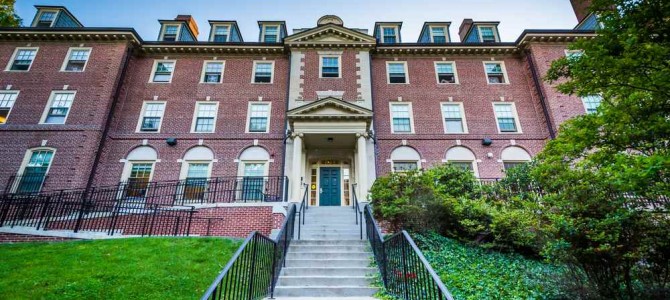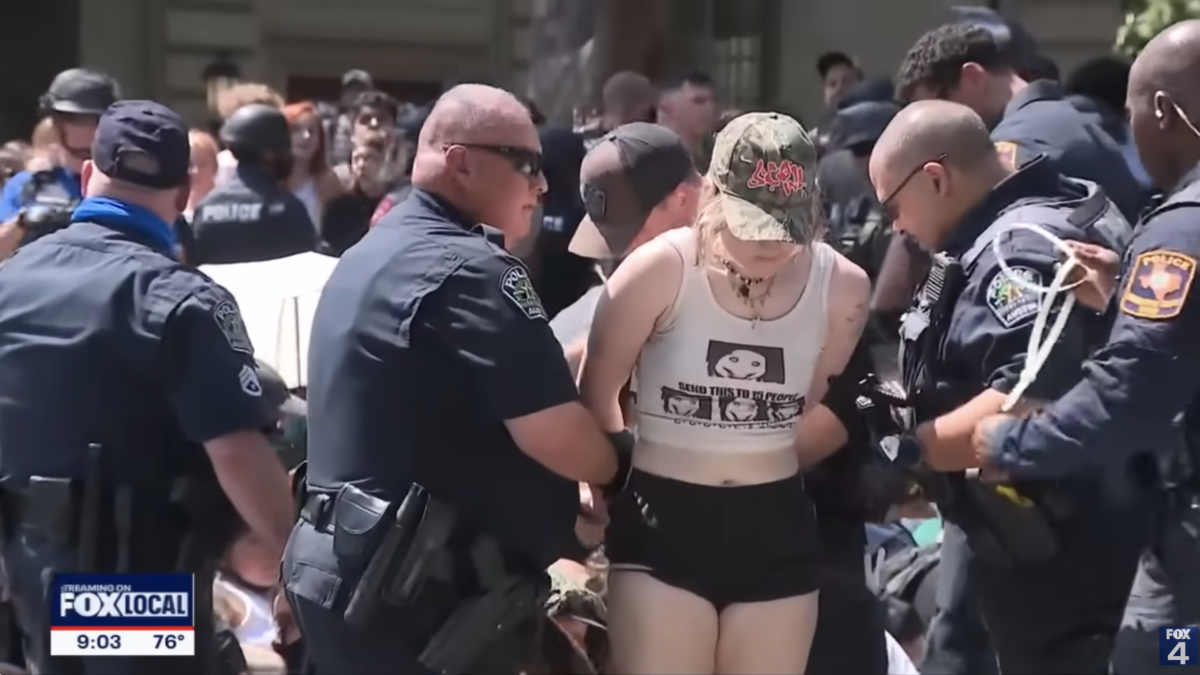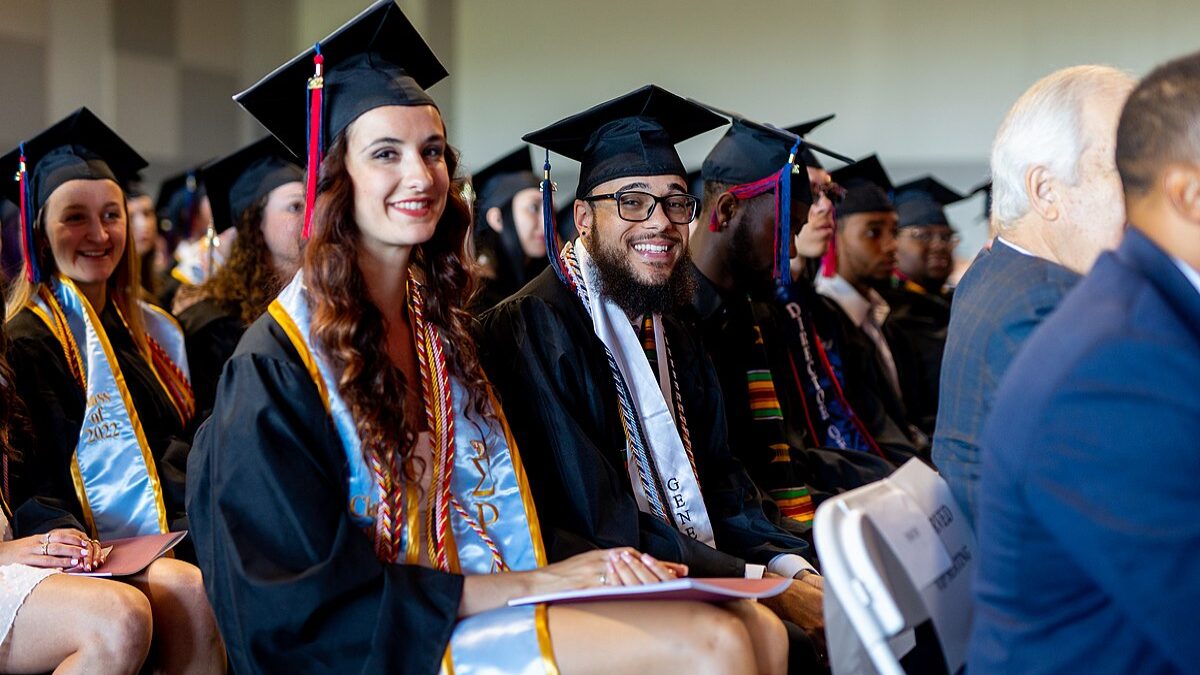
The war on campus free speech is escalating, threatening not only rights of free expression, but also the purpose of the university and the intellectual pursuit itself.
Rob Montz of Reason TV took a closer look at the nature of this phenomenon in a mini-documentary focusing on Brown University, his alma mater. His film, screened Monday at an event sponsored by American’s Future Foundation, shows gorgeous shots of Brown’s lush green lawns and architectural splendor interspersed with more sinister scenes, such as mobs of student protesters screaming “racism is not up for debate.”
“This is not the Brown that I know,” Montz, who narrated the documentary, said. “This is students weaponizing victimhood to stifle debate.”
There’s a “nasty activism” overtaking Brown, the video suggests, and the university provides merely one glimpse at the anti-free speech epidemic sweeping America’s institutions of higher education. Students today are more interested in using campus to force a radical liberal ideology on everyone around them than actually learning, and would rather censor and shut down those who oppose their beliefs with vitriolic activism rather than engage opposing sides in debate and dialogue. And heaven forbid they actually be interested in learning something from others’ arguments.
Portraits Of Dead White Males Are ‘Microaggressions’
The film recounts tale after tale of students choosing censorship over free speech. One scene showed student protesters storming the president’s office and shouting down the provost. This was last fall, when Brown unveiled a multi-million-dollar diversity plan some students disagreed with.
“Can I just make a suggestion? Can we just have a conversation?” the provost asks on-screen. “No!” the crowd of students responds. “Heterosexual white males have always dominated!”
According to the video, students in last year’s freshman class received orientation pamphlets that called data and statistics “structures of oppression” and mapped unsafe spaces on campus—including a lecture hall with portraits of white former Brown presidents. The pamphlet said these portraits constituted “microaggressions.”
When Wendy McElroy, an author who dared to question whether America has a “rape culture,” was invited to a public debate at Brown, student activists demanded she not be allowed to speak on campus and began organizing alternative events. Faculty who attempted to gather signatures for a free speech resolution following the uproar were shut down, Montz added.
Exchange Of Ideas Used To Be The University’s Purpose
In the video, Montz praises former Brown president Ruth Simmons—also the first black president of an Ivy League university—for modeling a true intellectual attitude toward free speech. When conservative David Horowitz ran an ad in the Brown student newspaper criticizing the idea of requiring taxpayers to give money to descendants of slaves in retribution for slavery, student activists responded by stealing all the newspapers. Simmons, however, invited Horowitz back to speak on campus and sat in the front row for his lecture.
“The collision of views and ideologies is in the DNA of the academic enterprise,” Simmons says on-screen. “We don’t need any collision avoidance technology here. Thank you very much.”
Brown economics professor Glenn Loury, like Simmons, believes the way to combat false ideas is through genuine debate and refutation, not immature censorship.
“The answer is to take the offender to the intellectual woodshed, which is to say, to refute what they’ve just said, to point how it’s silly, unhistorical, superficial, and without ethical foundation,” Loury says in the film. “That’s what the university is for—the university is there to teach people how to do that. And we corrupt that process in education with the capitulation to the presuppositions of adolescents.”
University Administrators Are Scared of Students
Debate and dialogue, according to Montz’s video, is what higher education ought to be about. Yet students today seem less interested in learning than in trying to force their personal ideology on others. Unfortunately, Brown’s administrators today are all too willing to permit this censorship of ideas when students make their demands.
“Administrators are universally terrified,” Ari Cohn, an attorney at the Foundation for Individual Rights in Education, said at a panel discussion following the screening. “The fact is that a single tweet can bring down an administrator’s entire career these days, and they are petrified, as much as they are of the federal government.”
This minority of far-left students hostile to free expression has always existed, said Robby Soave of Reason magazine. What’s changed is that in the last five years they’ve gained institutional power.
“[Student activists] actually started getting guidance in 2011 from the Education Department that because of harassment law, because of the requirements of Title IX and aspects of the law that funds higher education, administrators have to take students’ demands seriously or the institution could lose its federal funding,” he noted.
‘Corporatization’ Of Colleges To Blame
Montz added the other great factor in this censorship culture is what he calls the “hyper-corporatization” of the university. When most of the adults on campus are there merely to administrate and raise money, and the professors care only about the tenure process, nobody’s left to commit to the higher principles of education.
“When all the adults on campus are otherwise occupied, you’ve basically left a void there,” Montz said. “And it would make sense to me that that void would have to be filled with something—the students are just interested in looking for something more foundational to attach themselves to, and the only thing on campus that represents that a lot of times is this more radical, postmodernist identity politics.”
Although the future may look grim for free speech on America’s campuses, Soave noted that certain professors who can’t be fired—academics with more of a voice and power or who are nationally known—have been doing a lot of good in this battle.
“The law faculty of Harvard has taken a very courageous stance in favor of students’ rights,” he said. “The American Association of University Professors is stridently pro-free speech, pro-first amendment, and they put out great material on the excesses of the [federal] Office of Civil Rights. I think the faculty is hopefully our next great ally in this fight.”
The film will debut Thursday on WeTheInternet.tv, a comedy web show about politics, current events, and everyday life.








